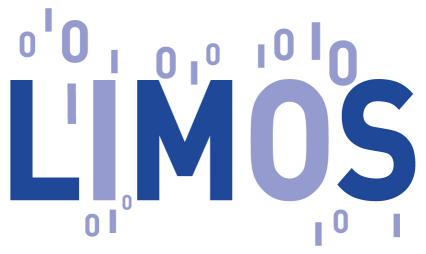|
Date : 15 décembre 2023 14:00 - Type : Thesis - Michail GIANNOULIS - Salle C101 (salle du conseil)
Deep Learning Analysis of multiprobe sensor networks to assess risk scenarios at volcanic hydrothermal systems |
In diverse application domains, the unsupervised exploration of temporal-based anomalies in multivariate time series presents an ongoing challenge. This exploration, when applied to sensor systems such as surface, spacecraft, or satellite, can assess hazardous situations or discover unexplored phenomena. The objective of this thesis is to develop a data-driven Deep Learning model capable of sending alerts concerning the timing, location, and hazard severity of environmental crises at hydrothermal systems. Indeed, the understanding of the modeling characteristics to facilitate the detection and interpretation of these phenomena remains limited.
To address these characteristics, this thesis examines literature limitations and subsequently proposes a new solution, namely DITAN. DITAN is an unsupervised and domain-agnostic framework developed specifically to tackle the challenge of detecting and interpreting temporal-based anomalies. It employs an encoder-decoder architecture with attention mechanisms and a dynamic structure with hyper-parameter optimization to learn normal behavior as regular context-horizon patterns. The model predicts normality and identifies critical regions associated with high prediction offsets for detecting anomalies. The detected anomalies are interpreted both numerically, by examining their root causes and similarities, and physically using temporal IF-THEN rules and the reasoning power of a knowledge system.
The effectiveness of DITAN is assessed on seven real-world datasets contaminated by different type of temporal-based anomalies with varying durations. DITAN’s detection capabilities are evaluated against the ground truth and compared to eleven deep model-based approaches from the addressed literature. Additionally, DITAN’s numerical interpretation of detected anomalies is empirically verified. The results show that DITAN outperforms the existing literature in terms of precision, at the cost of a lower recall rate mainly due to sub-capturing the actual anomalies. To ensure optimal results, it is crucial to carefully define the context and horizon sizes.
DITAN is then applied to assess risk scenarios at volcanic hydrothermal systems, detecting anomalies caused by external factors on the surface of a stable hydrothermal system. The results showcase a timeline of fourteen physical event occurrences, each of them assessed by a risk level and verified across actual sensor values. Specifically, ten occurrences involve two meteorological events, while four occurrences are attributed to three surface external driver events that indicate temperature decrease in different zones. Then such externally-driven anomalies can be cleaned and removed from periods when the internal drivers become variable and, hence, the hydrothermal system becomes unstable.
Since DITAN is domain-agnostic framework due to its hyper-parameter optimization capabilities, its structure can be adapted to be applied on various problems involving predictable multivariate time series.
This PhD was funded by the Agence National de la Recherche (ANR, Program CES 04 Innovations scientifiques et technologiques pour accompagner la transition écologique) through project DIRE (Data-Integration, Risk and the Environment; Project No: ANR-19-CE04-0014-01). ANR-DIRE is led by three CNRS laboratories of Clermont-Ferrand (LMV, LIMOS, LPC) and aims at defining time varying thermal trends at hydrothermal systems in unrest, with a focus on Vulcano (Aeolian Islands, Italy).
Keywords: Anomaly Detection, Volcanic Hydrothermal Systems, Multivariate Time Series, Artificial Intelligence, Deep Learning, Knowledge Systems.
Jury: Benjamin Van Wyk de Vries (UCA), Hugues Talbot (Central Supelec), Sylvie Vergniolle (IPGP), Haridimos Kondylakis (University of Crete), Violaine Antoine (UCA).
